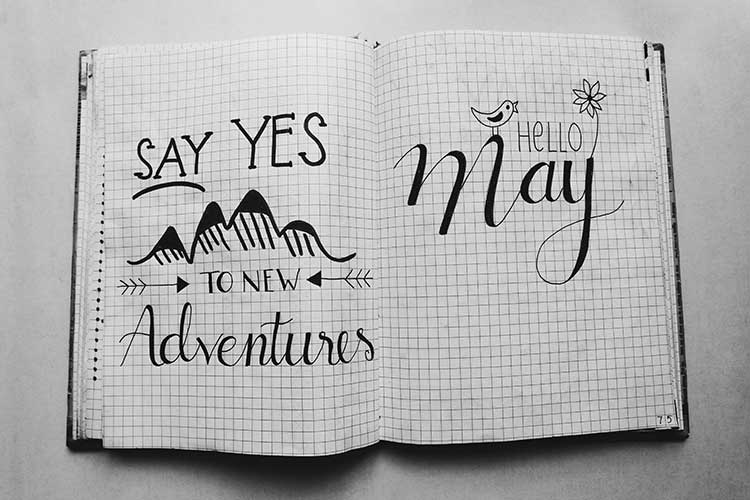 THE FINE ART OF NESTING
THE FINE ART OF NESTING Everyone has a story. Every voice has value. What better time than now to discover yours? We're offering workshops on paper making and kits for bookbinding. ... by Charlie Westerink
Read in Ned | February 15, 2018
By Jay Mann
Have you ever experienced book synchronicities? When a book’s story, characters, and/or tenor resonates with what is going on in your life? It can happen in a number of ways, including by chance. When I was twenty, I was about to transfer to a new school and was feeling anxious and uncertain. Browsing the bookstore one day, the cover of a book – The Wind Up Bird Chronicle by Haruki Murakami – caught my eye. The main character is in pretty dire circumstances – he has just lost his job and both his cat and wife have disappeared. The narrator’s future is uncertain, but he still manages to keep both a routine and his sanity. Suddenly, my situation paled in comparison.
Another synchronicity occurred with a book that I discovered in a modest library at a biological field station in Manu National Forest, Peru. It was a seemingly random assortment of books, mostly paperbacks, some moldy, some with psychedelic 70s covers and others more recent. I chose to read Doomsday Book by Connie Willis. The narrator is a graduate student living in a time where time travel is a reality — she goes back to the 14th century to study the black plague and gets trapped there.
There were some parallels between the 14th century and our living conditions at the field station – the food was overwhelmingly, unvaryingly monotonous (rice, beans, granola); storytelling was the main entertainment, and we were at the mercy of the climate – the pervasive heat and humidity made comfort a distant memory. Add in botflies (I had three) and Leishmaniasis (luckily none) and we were all eyeballing any bumps or discolorations of our bodies warily.
The physical and communication isolation of the field station were positively medieval. I arrived two weeks after 9/11. After flying and landing in the rainforest east of Cusco, it is a day and a half voyage upriver. The area around the station is limited to scientists, generally biologists and anthropologists. The entirety of my social world was thirty-some people. At the time, satellite phone service cost $20 / minute so we had no idea what was going on after the attacks. It wasn’t until another boatload of researchers arrived with the written word (newspapers) that we caught up.
Several weeks ago I went to a memorial service of a lifelong family friend in El Paso, Texas. It took me awhile to choose a book to bring for the trip; I ended up taking and reading The Immortalists by Chloe Benjamin. The book is many things, but the plot is that four young siblings visit a fortune teller and are told which day they will die on. The book does a convincing job of exploring their family dynamics, especially the complicated emotions that result from a family member’s death. The language is both beautiful and insightful: “She understands, too, the loneliness of parenting, which is the loneliness of memory – to know that she connects a future unknowable to her parents with a past unknowable to her child.” And the question that lingers with you is whether you would live your life any differently if you knew when it would end.
Jay Mann is the Director of the Nederland Community Library. Join local author Finn Murphy for a reception at the library on Thursday, February 22nd at 7:00 PM. Murphy will discuss his experiences that led up to his critically acclaimed first book, The Long Haul: A Trucker’s Tales of Life on the Road (W. H. Norton, 2017). Light refreshments will be served and participants have a chance to win a signed copy of the book.